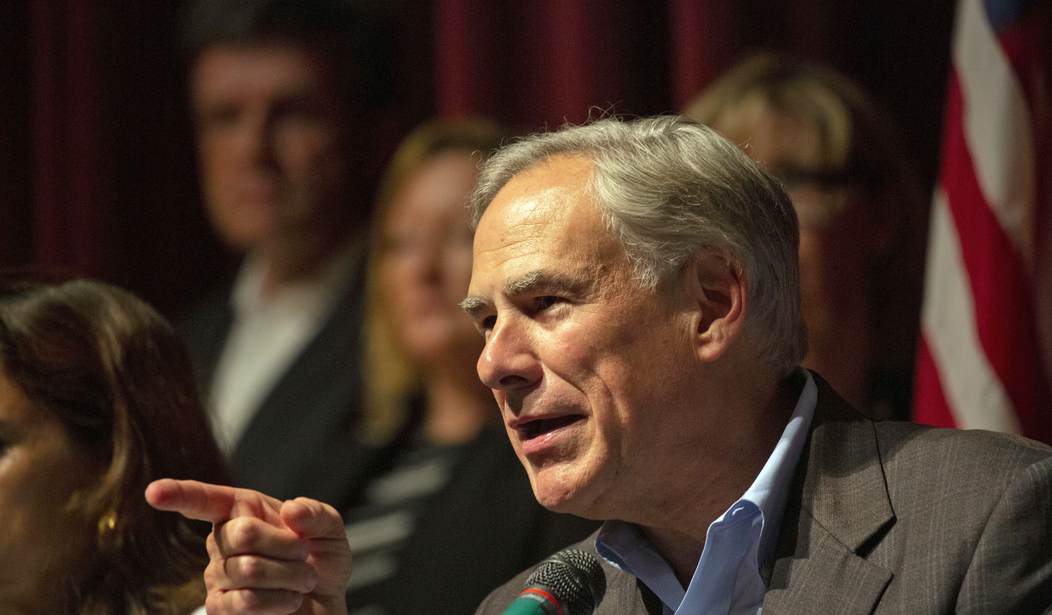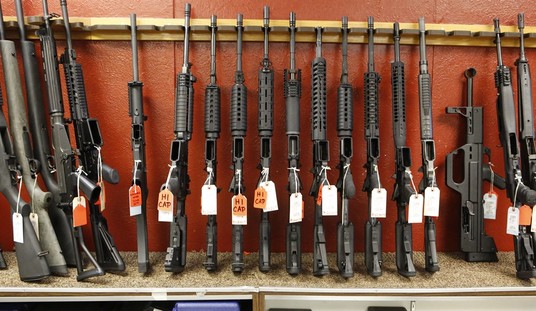In a whirlwind few hours on Thursday afternoon the Texas Board of Pardons and Parole unanimously endorsed a pardon for convicted murderer Daniel Perry, Gov. Greg Abbott officially pardoned the Army veteran, and Perry was released from the Texas prison where he's spent the past year. Predictably, many on the left immediately melted down upon hearing the news, bemoaning Texas' descent into fascism and accusing the governor of sanctioning the murder of progressives.
Perry was convicted last year of killing Air Force veteran and Black Lives Matter protester Garret Foster during a rowdy protest in Austin back in July, 2020. Garrett, who was openly carrying an AK-47, approached Perry's car after he drove up to where protesters had blocked traffic. Perry maintains that he fired on Garrett with his lawfully carried concealed handgun because he was afraid that Foster was about to shoot him, but a Travis County jury convicted him of murder, and last May he was sentenced to 25 years behind bars for the death.
Shortly after the verdict, Abbott declared his intent to pardon Perry if the Texas Board of Pardons and Paroles recommended that step, so Thursday's pardon wasn't exactly unexpected. From the get-go, the governor has blamed progressive politicians for Perry's prosecution, and he took another swipe at the Travis County D.A. yesterday.
"Texas has one of the strongest ‘Stand Your Ground’ laws of self-defense that cannot be nullified by a jury or a progressive District Attorney," Abbott said in a statement Thursday. "I thank the Board for its thorough investigation, and I approve their pardon recommendation.”
In a proclamation Thursday, Abbott took aim at Travis County District Attorney José Garza, writing that Garza "demonstrated unethical and biased misuse of his office in prosecuting Daniel Scott Perry."
... Shortly after Abbott’s announcement, a state district judge unsealed court records that contained Perry’s previously unreleased messages and social media posts, which contained racist rhetoric.
"Daniel Perry was imprisoned for 372 days and lost the military career that he loved," Doug O'Connell, an attorney who represents Perry, said in a statement. "The action by Governor Abbott and the Pardon Board corrects the courtroom travesty which occurred over a year ago and represents justice in this case.
"I spoke to Daniel Perry this afternoon. He is thrilled and elated to be free. Daniel is also optimistic for his future."
Garza condemned the actions of the parole board and Abbott, writing in a statement that they have "put their politics over justice and made a mockery of our legal system."
"They have sent a message to Garrett Foster’s family, to his partner, and to our community that his life does not matter. They have sent the message that the service of the Travis County community members who served on the grand jury and trial jury does not matter," Garza said. "We will not stop fighting for justice. "
It may very well be that Perry was railroaded by Garza, but I don't think the case was ever a slam dunk in Perry's favor. Video from the scene shows Graff approaching the car with his rifle in a low-ready position, but there's no footage that showed him pointing the gun at Perry before he was shot. There were two individuals exercising their Second Amendment rights that night, and one of them ended up dead. Was it lawful self-defense, as Abbott maintains, or was it murder, as the jury concluded?
The Board of Pardons and Parole conducted "a thorough examination of the amassed information" before unanimous voting to recommend a pardon for Perry, but the short statement released by the board never details or explains what exactly led them to reach that decision.
On April 7, 2023 U.S. Army Sergeant Daniel Perry was convicted of murder in Travis County, Texas and later sentenced to 25 years in the Texas Department of Criminal Justice-Institutional Division. On April 8, 2023 Governor Greg Abbot, pursuant to Section 508.050 of the Texas Government Code, requested the Board of Pardons and Paroles conduct an investigation and make a recommendation as to a pardon for Sergeant Perry. The members of the Board of Pardons and Paroles delved into the intricacies of Perry’s case. The investigative efforts encompassed a meticulous review of pertinent documents, from police reports to court records, witness statements, and interviews with individuals linked to the case. After a thorough examination of the amassed information, the parole board reached a decision on May16, 2024. The Board voted unanimously to recommend a full pardon and restoration of firearm rights. The recommendation of the Board was conveyed to the Governor on this same date.
So what did those investigative efforts uncover? What was the compelling evidence that convinced every member of the board to recommend a full pardon and the restoration of Perry's rights?
I'm not saying that the board made the wrong call. Based on their statement, it's impossible to determine that one way or the other. That's why I believe the board, as well as the governor, should explain and outline the evidence that led them to essentially overturn the jury's decision. Vague statements about unethical actions and prosecutorial abuse aren't enough, in my opinion. I'd like to know the specific problems the board discovered during its investigation.
It's far too easy for the left to claim that Abbott's decision is politically motivated, especially with news of the pardon coming just as the NRA Annual Meetings are kicking off in Dallas, where the governor is scheduled to speak on Saturday. Providing the details of the investigation would help to defuse those allegations, though I'm sure that the folks who are adamantly convinced that Perry should rot away in a prison cell for the next two decades would be unswayed by whatever evidence Abbott and the board presented to the public.
Their answers won't satisfy everyone, but I still think it's important that this information be brought forward. Government is best when it operates in the sunlight, not the shadows, and we'd all benefit from learning what facts the board obtained that led them to conclude that justice was best served by freeing Perry and granting him a full pardon.









